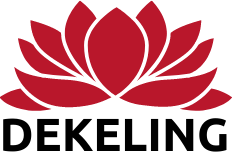
Our Lineage
Dekeling is a meditation community whose practices are rooted in the 2600-year-old teachings of the Buddha, and flow from the Shangpa and Karma Kagyu traditions of Tibetan Buddhism.
Our meditation path is designed to transform ordinary human suffering into the awakened energy of wisdom and compassion. There is an opportunity for a spectrum of training, from simple efforts to be more loving and mindful, to training intensively in study, contemplation and meditation.
All students are encouraged to make continuous effort to integrate the practices into daily though ‘homework,’ which we call ‘carrying practice. We engage in discussion and peer-to-peer learning as well.
We support these aims with frequent meditation retreats where we can practice together deeply and restore our bodies and minds. We regularly engage with Buddhist communities in other schools of Buddhism, including our long-time friends at Zen Community of Oregon.
Our teachers—Lama Lekshe and Teacher George Draffan—are long-time students of Buddhism with decades of practice, teaching and mentoring experience.
Our community culture is open, inclusive, and focused on learning together, respectful and appreciative of our differences. We believe that any challenges we encounter are fuel for growth and a part of our humanity and awakening.
The foundation of our practice is nurtured by long-standing connection and guidance from beloved lineage holders, including Kalu Rinpoche, Bokar Rinpoche, and Khenchen Lodro Donyo Rinpoche, as well as decades of guidance from first-generation disciples of these great teachers.
We value developing ourselves as full beings. Our practice includes service, opportunities for in-depth study in traditional practices including lam-rim programs, ngöndro, yidam practice, secular skill-building and the rich array of rituals found in Tibetan Buddhism. We cultivate community-wide dialogue continuously, and both our teachers generously offer their time for one-on-one mentoring for students committed to on-going practice. Our teaching offerings value the feminine voice as equally important.
Our community is compelled to grow naturally, free from the sense that ‘bigger is better.’ In a style we call ‘nomadic,’ our teachers go where requested to teach, and so our community members hail from both large cities and small communities in many places. For this reason, much of what we do is available online as well as in person in Portland and New York.
We call our mode of engagement ‘village dharma,’ and we encourage students to interact meaningfully online and face-to-face with each other and their larger communities to bring goodness and peace to a suffering world; and to support each other in times of inevitable challenges as life goes by.
We mean to be relaxed, focusing little on hierarchy, status and other divisive structures. We encourage our teachers and leaders ‘take their seat’ as guides with humility and full accountability to community at large. There is not a single community member above the guidelines of Buddhism’s ethical code of decency and dignity.
We invite people to join us and see for yourself if we are a good match. If not, we wish you and all beings the good fortune of finding a spiritual home that meets your needs and if we can help you in your quest, we hope you’ll let us know.
Our lineage guides
-

Kyabje Kalu Rinpoche (1905 - 1989)
A master of meditation and long retreat, Kalu Rinpoche completed a Shangpa Kagyu 3-year retreat in while in residence at Palpung Monastery in Tibet. When he was 25, he left the monastery and entered into a 12-year solitary retreat, later coming out to become the retreat master for the Karma Kagyu and Shangpa Kagyu centers at the request of Situ Pema Wangchok, who requestd he become the retreat master long retreats. In 1951 he immigrated to West Bengal, India, and eventually built Samdrup Dargye Ling Monastery in Sonada, and took up permanent residence. In later years he traveled widely, establishing dharma centers and retreat facilities across the world, introducing many Western students to Tibetan Buddhist practice.
-

Kyabje Bokar Rinpoche (1940–2004)
Kalu Rinpoche’s principal student, Bokar Rinpoche Chokyi Lodrö, was born in Tibet in 1940, but like many Tibetans, fled to India. He was 19. In India, he became the student of Kalu Rinpoche and completed both Shangpa and Karma Kagyu long retreats under his guidance. Later, Bokar Rinpoche served as the Retreat Master at Kalu Rinpoche’s monastery in India. In 1984, Bokar Rinpoche founded Bokar Monastery in Mirik, India, and in 1992, created the Mahamudra Program—a well-known progressive path of meditation practice designed for non-Tibetan students worldwide. Bokar Rinpoche passed away in 2004. He was beloved worldwide for his clarity, warmth, and depth of realization.
-

Khenchen Lodrö Donyö Rinpoche
Khenchen Rinpoche was born in the Ngari region of Western Tibet in 1943. At the age of nine he entered Bokar Monastery and began his education under the direct guidance of Kyabje Bokar Rinpoche. In 1959, he accompanied Bokar Rinpoche to India and entered a boarding school in Darjeeling to continue his studies. Wishing to pursue higher education, in 1966, he left for The Central Institute for Tibetan Studies in Varanasi where he completed his higher studies and received the āchārya degree.
In 1976, he was granted the title and certification of khenpo. From that time forward, Rinpoche has acted as the abbot (khenpo) of Kyabje Kalu Rinpoche’s monastery in Sonada. When Bokar Rinpoche passed in 2004, Khenchen Rinpoche has assumed Bokar Monastery’s primary leadership role.

